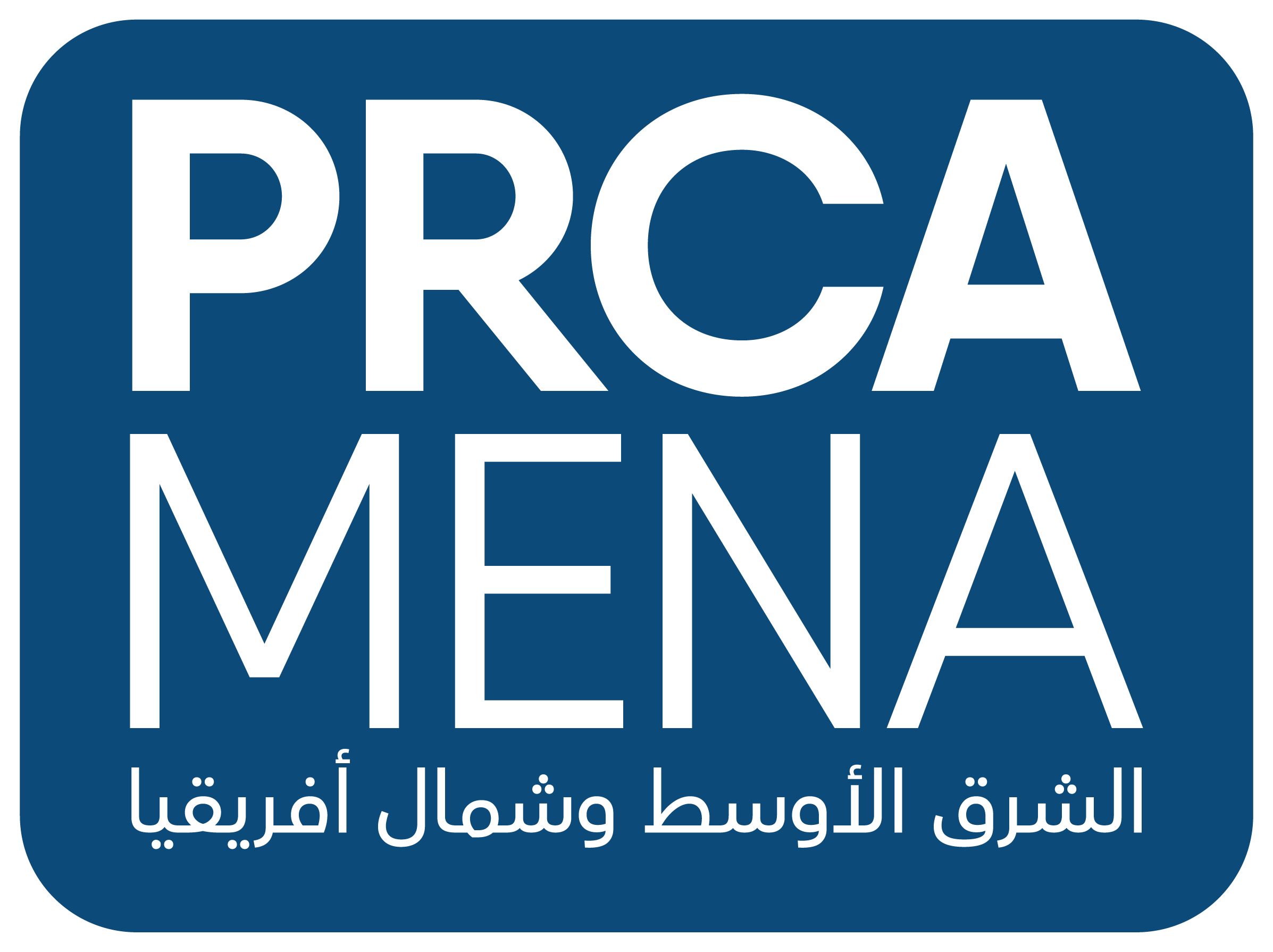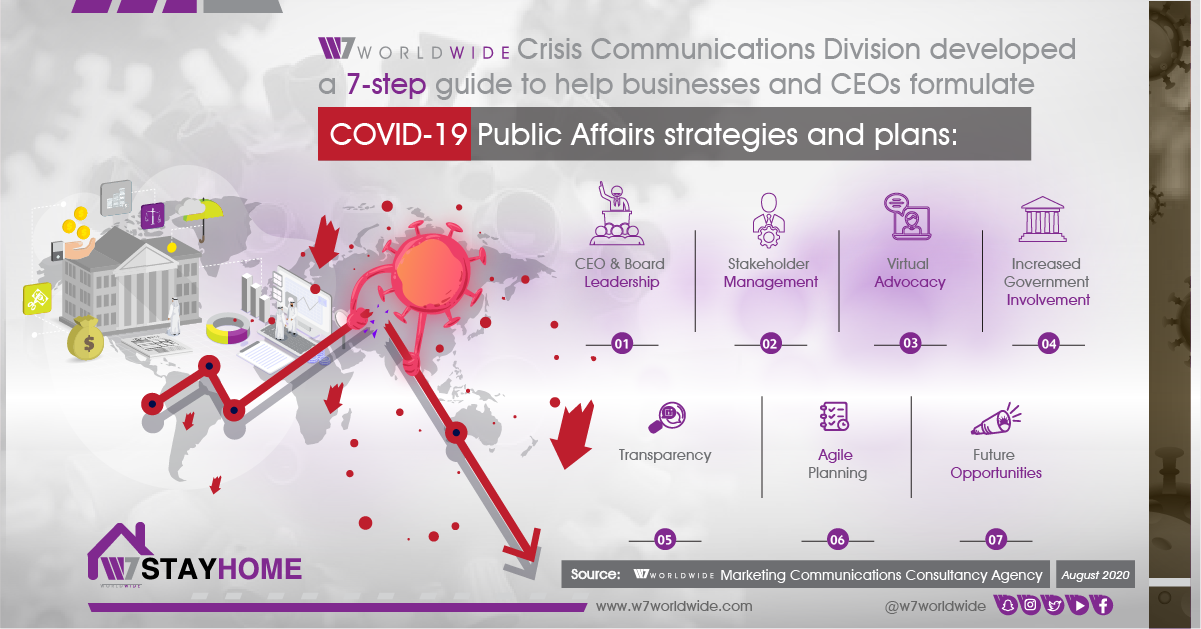W7Worldwide Advises Corporates to Step Up Their Public Affairs Efforts to Aid COVID-19 Recovery
Wednesday 19th August 2020
COVID-19 has significantly changed the relationship between business and government as the crisis impacted every country, threatening not only its people, but also their economies. Governments consolidated their powers to enable rapid decision making on lockdowns, introducing special emergency measures, public health guidelines, recovery funding and post-lockdown plans for reopening societies.
Governments have had to rely on businesses to step forward quickly to provide key workers, essential supplies, services, and advice. COVID-19 is a significant new responsibility for the corporate sector who now needs to team up with government to restart the economy. Collaboration between the public and private sector will help drive recovery. Neither business nor government can go this alone. At a time when governments depend on the continued cooperation of the corporate sector to help manage the ongoing demands of COVID-19, Public Affairs needs to react immediately to the new situations around it and is therefore one of the fastest moving communications specialists during this crisis.
‘COVID-19 has seen a high level of lobbying and public affairs activity as businesses seek to influence the policies employed by governments to manage the economic fallout of the pandemic.’ explains Abdulrahman Inayat, Director and Co-Founder of W7Worldwide. ‘Building the right relationships now will ensure you create a positive climate of opinion about your company as being part of the solution going forward. There are many strategies companies can deploy to ensure they are included in the new close dialogue between government and industry.’
W7Worldwide has produced a helpful 7-step guide for companies to build their COVID-19 Recovery Public Affairs Programme. (Click Here to Read Full Report).
- CEO & Board Leadership – It should always be the CEO and the board that sets out the tone for responsible advocacy and oversees activities. They inform stakeholders about policies, statistics and other information regarding sensitive issues associated with the business.
- Stakeholder Management – Public affairs is the bridge connecting companies with relevant stakeholders, such as government departments, civil servants, business groups and professional/trade organizations.
- Virtual Advocacy – Public Affairs practitioners need to take advantage of the fact that in person meetings, consultations and events will be taking place virtually for the foreseeable future. The benefit of this is that there is greater accessibility, with governments in full listening mode.
- Increased Government Involvement – Every business sector will see increased involvement from the state with various interventionist measures to steer the recovery of their country. The repercussions of this can include taxes, an expectation of better support for employees, businesses being asked to play a role in the delivery of social and economic agenda.
- Transparency – To reduce the risk of undeclared conflict of interest, companies that are engaging with the government in stimulus packages should disclose to external stakeholders who is ultimately benefiting. Society will not only remember what companies did to save lives and the economy but how they did it.
- Agile Planning – Governments will be working on urgent recovery efforts for the coming months to bring their economies back on course. Public Affairs needs to closely monitor for developments in all areas that may affect an organization as this remains a fast moving situation.
- Future Opportunity – As governments are seeking to kick-start the economy and encouraging businesses to recover, there is the opportunity to help shape a favourable regulatory landscape. Provide expert insight, backed up with facts and figures, adopting an approach of advising government on how your industry sector can survive the challenges caused by the COVID-19 crisis.
W7Worldwide carried out a recent poll to understand Public Affairs Practitioners’ current focus, with most of the English (24.5%) and Arabic (19.7%) respondents seeing ‘Agile Future Planning’ as their top priority. ‘Supporting Remote Working’ practices is considered important by both the Arabic and English sample (24.9% Arabic/15/1% English. In comparison to Arab respondents (9.4%) a greater number of English survey participants (18.9%) prioritized ‘An Increase in Public Affairs Activity.’
The greatest change emerging from the pandemic is the social change across the globe in every country. Public Affairs strategies need to align with the changing way we communicate not only with policy and decision makers, but with society at large. Governments wish to protect the reputation of their country in the way they are seen to contain, manage and emerge from the COVID-19 crisis, which will ultimately shape public opinion and their place on the global stage. This is a time where business and industry can make an important and meaningful contribution to national recovery efforts and show that we really are all in this together.
Public Affairs can be a complex communications discipline because companies need to understand how to galvanise the right support and conduct themselves in an ethical and transparent manner. W7Worldwide provides its 7-step guide to help businesses and CEOs formulate their ‘Public Affairs Towards COVID-19 Recovery’ strategies and plans.




